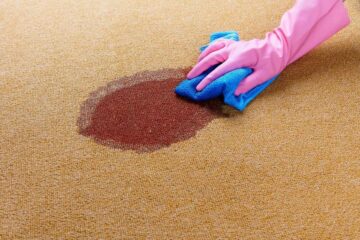Let’s face it, no one likes bug unless they are in an animated movie. While they may have their special place in the food triangle, they are truly a nuisance. They may have a purpose to serve in the world, but they are unacceptable in homes.
They are irritating. They are disgusting. And they may carry various disease and infections. So, if they have somehow made their way into your peaceful abode, you need to get rid of them. That’s where the tricky part begins.
Not all bugs are that easy to get rid of. Ordinary insects and pests like cockroaches and ants may not require too much effort. Mites and bed bugs aren’t your best guests. Once they are on your property, they won’t leave that easily. In fact, many people would tell you to leave the property instead.
It doesn’t have to be that way. Some bugs might be a bit rude and stubborn, but that doesn’t mean you can’t make them leave. You need to set your foot down and take your bug fighting endeavors to the next level. Don’t stick to just one method. Try as many ways as possible and make their lives miserable.
Here are 11 ways to show them who owns the place.
1. Take care of standing water
Standing water is the breeding ground for numerous bugs including mosquitos. Over the last few years, we have seen numerous cases of diseases spread through these annoying pests. This includes the dreadful zika and dengue virus. You can keep these bugs away by making sure there is no standing water on or around your property. Clean roof gutters on a regular basis. Change water in birdbath and fountain almost every week.
2. Reconsider your gardening choices
Plants have a lot to do with insects. While some repel bugs, most of them attract a wide variety of them. Look up all the plants in your garden and see if any of them attracts an unusual number of bugs. A common culprit in American gardens is the Japanese barberry, which happens to be the habitat of ticks that carry Lyme disease. If you have that tree in your garden, you know the root of the bug problem in your home. Get rid of it.
3. Plant more herbs
As we said, some plants can actually repel insects. Most herbs fall in this category. Bugs usually don’t like the smell we admire so much. Rosemary, thyme, and mint are prime examples of herbs that work as insect repellents. Rosemary can keep wasps away from your home and kitchen. You can hang them near windows or any area that serves as a hideout or entryway for the bugs that invade your house. You should also place them in areas where wasps are most likely to build a nest.
4. Secure the perimeter
Window screens are no-brainers when it comes to keeping bugs away. Flying insects like mosquitoes can make their way into your home throw the tiniest of cracks. So, put a fine mesh screen on all the windows. Cover and fill in all the cracks in the walls; even if they aren’t entryways, they can serve as good hideouts for insects that find their way in.
5. Cover that trash
Keep your garbage cans covered. This sounds like the most basic piece of advice, but you’d be surprised to know that many people don’t abide by this rule. It doesn’t matter how often you take the trash out. Make sure the can is always covered, or it will invite all kinds of bugs including roaches and flies. Uncovered trash cans are also home to bigger pests such as rats and other rodents. You can sprinkle borax in the cans to keep it fly and bug-free.
6. Fix all leaks
A leak isn’t always about a dripping tap. Sometimes you don’t even know there is a leak until it’s too late. If your plumbing system is older than a decade, there is a high chance of a leak. Old pipes erode and leak inside a wall. This leads to mold, which in turn facilitates the infestation of different bugs and mites in the house. So call for a complete inspection every few years and fix all the leaks to ensure a bug-free home.
7. Clean your kitchen
Again, this may sound like common sense, but the kitchen is the most attractive place for bugs. And why not? That is where the food is. While you may not leave food out in the open for those uninvited guests, there may be enough crumbs around for them to feast on. Therefore, it is important to keep your kitchen clean all the time, especially before going to bed. Remove all the crumbs from the floor and wipe with water. Give it a good scrub at least once a week.
8. Change your bedsheets
Sweaty bedsheets are sweet invitations for bed bugs. They thrive in mist environment. It is important to change your bedsheets at least once a week to prevent such infestation. Wash your sheets with a high-quality detergent and pour some antibacterial liquid in the water. Make sure the sheets are completely dry before you spread them on the bed again.
9. Go for plant-based bug killers
Prevention is the best cure, but you can’t always avoid a calamity. If bugs have already invaded your space, you need extermination. However, it doesn’t have to be the severely harmful chemicals that can be dangerous to your health as well. Go for EPA approved products that aren’t healthy or environmental hazards. A good example is Proof bed bug spray, which is a non-toxic product made of plant extracts.
10. Take a shower
It is a good idea to take a shower whenever you come home, especially if you were roaming near plants and trees. A quick warm shower will enable you to get rid of any bug or tick that latched itself onto your body while you were outside. The sooner you get into the shower, the lower the chances of dropping the bug on your carpet or furniture.
11. Keep your pets clean
All pets can be carriers of ticks, mites, and other bugs. Cats and dogs with a lot of furs are more susceptible to this problem. It is very important to take care of their hygiene. Ticks can infest your home and make your pets sick. Give them a bath with an anti-tick shampoo and talk to your vet about proper care and maintenance.
Conclusion
Bugs are the last thing anyone wants in their home, but those meddling pests don’t seem to care. You need to take matters into your own hands. The key to dealing with the problem is to keep your home clean and disinfected. Prevent unnecessary moisture, seal all entryways, and use products that are safe for you but fatal for those bugs.



0 Comments